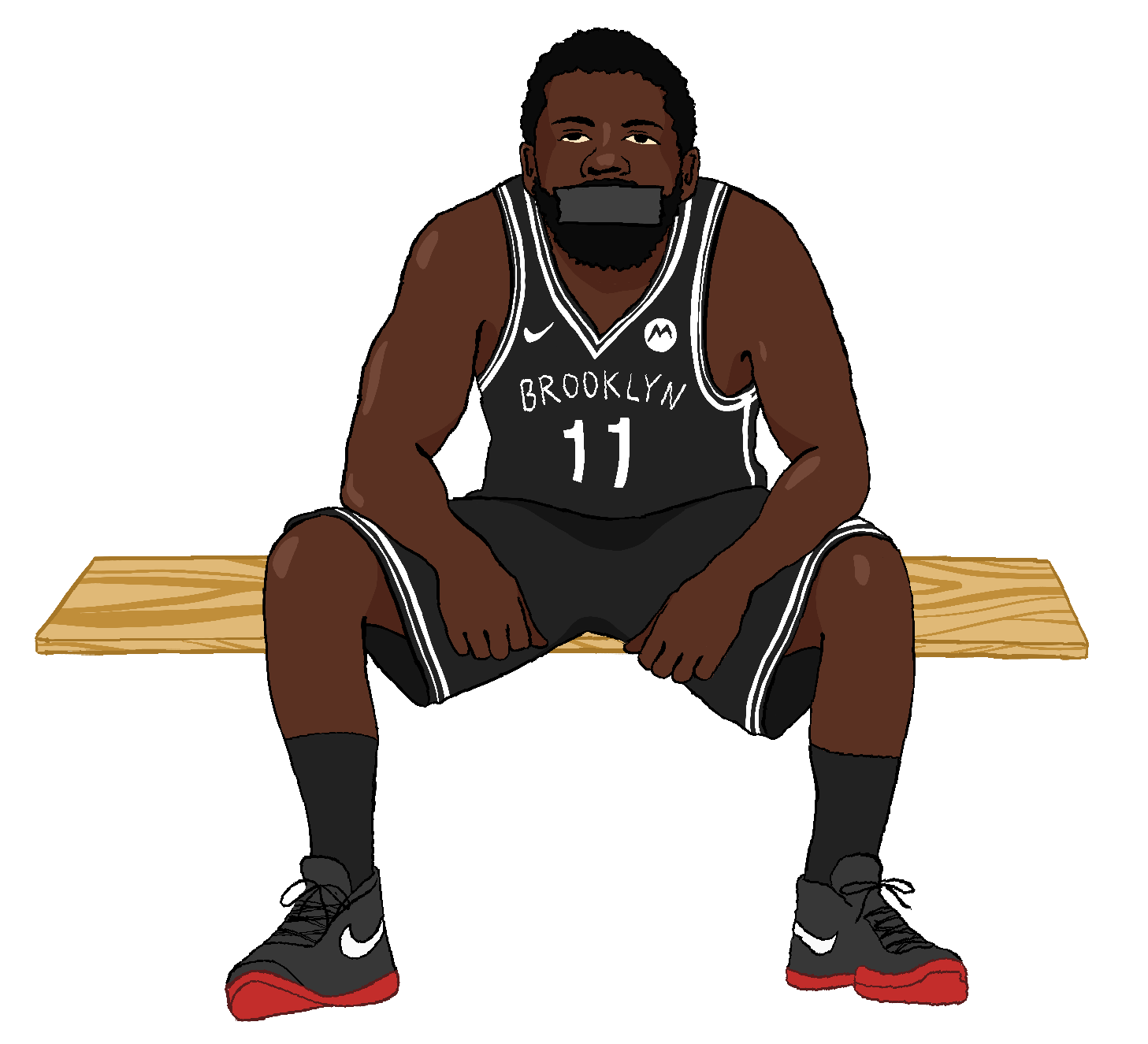Thursday, April 24
A Fall from Grace: Kyrie Irving’s Fallout with the NBA
Stanley Dufour '25 in Sports | November 11, 2022

Brooklyn Nets superstar Kyrie Irving is well known on the court for his incredible dribble moves and crafty layups, but off the court, he is also known all too well for the multitude of controversies he’s been involved in. From his refusal to get vaccinated to believing the earth is flat, he’s had no shortage of interesting antics and beliefs that have made his off-court persona just as interesting as his one on the court. Irving’s most recent controversy was his promotion of a film on his Twitter account labeled by civil rights groups as anti-semitic.The film in question claimed that Jews oppressed the Black population, that they were responsible for the Trans-Atlantic slave trade, and also claimed that the Holocaust was fabricated. Playing in the city that is home to the second largest Jewish population in the world, the whole affair unsurprisingly didn’t sit well with Irving’s fans. The Brooklyn Nets organization suspended Irving for a period of five games with no pay after he “refused to unequivocally say he has no antisemitic beliefs, nor acknowledge specific hateful material in the film.” The NBA has made it very clear that “hate speech of any kind is unacceptable and runs counter to the [League]’s values of equality, inclusion, and respect,” and that any form of derogatory or offensive language can result in tens of thousands of dollars in fines.
Many believe that censorship in the NBA and mainstream sports leagues in general is at an all-time high (throwback to Mark Cuban’s $600k fine for mentioning tanking) and believe that huge fines are being handed down far too often for simple self-expression. In certain regards, this is certainly fair, but when a player such as Kyrie Irving, who inspires and influences millions, promotes hate against any community, it’s understandable that the League would take this seriously. There is admittedly a lot of censorship in the modern NBA and other such leagues that is seen in the eyes of most as unnecessary. However, hate and discrimination in any form should be approached with a zero-tolerance policy, considering the image and influence that the people associated with these Leagues have. Although America is indeed a country of free speech, when one’s job is to entertain and inspire a young generation, one needs to be careful with what they say because they hold influence over the easily convinced youth who look up to them.
Many think that situations like these bring unnecessary politics into sports, turning what is supposed to be a pure demonstration of extraordinary human athletic capabilities into a political game. This is entirely true; the NBA shouldn’t be involved in matters of state, and vice versa. But, as previously mentioned, due to their status, athletes must still hold themselves to high moral standards and set a good example. This isn’t a question of politics. This is a question of basic tolerance and respect, and although there is free speech in America, the NBA is a private association with its own rules condoning any form of hate speech. Since the NBA considers Irving’s tweet to encompass hate speech, they thereby completely have the right to suspend him. Whether his suspension was too severe or not is up to the league to decide based on their values and how the incident affects the organization.
Related Articles
- The Case For Farming: The Big Red Farm is not a gimmick—it’s a way of life Eric Chen ’27
- A Season of Madness Derek Wolfe ’27
- Fly Eagles Fly Ellie Duffy ’26
- The 2025 Australian Open Marcus Tsai ’27
- Saquon Barkely & the Power of a Trade Ellie Duffy ’26
Recent Articles
- Announcing: Valedictorian, Aurelian Speakers, and Faculty Speaker Sophie Liu ’27
- Senior Profile: Sophie Cheng ’25 Katherine Qiu ’27
- Debunking the Dining Hall Debate: Is Lawrenceville’s Dining Really That Bad? Isabelle Lee ’27
- Welcoming Our New VPs for 2025-2026 Sophie Liu ’27
- A Sweet Return: Melba Reopens with New Flavors and Community Spirit Ella Song ’27